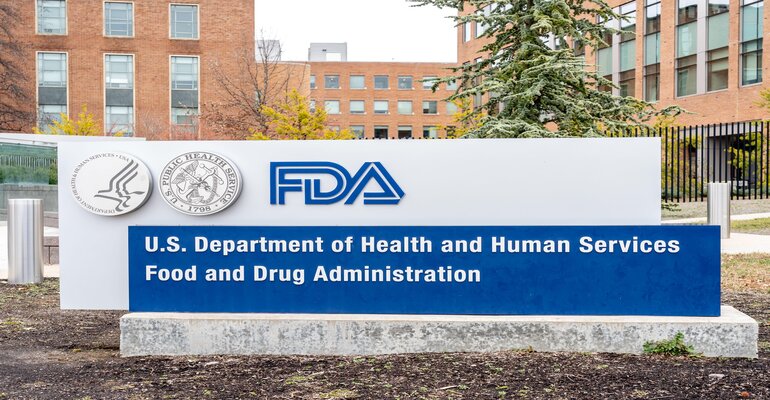FDA User Fee CR Passed, Questions on Policy and Reform Riders Remain
While a “clean” user fee package has been reauthorized, HR 6833 does not include the FDA policy and reform riders usually included in the “must-pass” bill, leading to many unanswered questions.

The House of Representatives recently passed a short-term continuing resolution (CR), HR 6833, as a temporary stopgap measure to continue funding the United States government past the end of the fiscal year. One of the included provisions in the CR extended FDA authority to collect user fees for prescription and generic drugs, biosimilars, and medical devices through the end of fiscal year 2027.
FDA user fees are collected from companies that produce certain products, like drugs and medical devices, and from other entities, such as certain accreditation and certification bodies. Federal law authorizes the agency to collect user fees to supplement the annual funding that Congress provides. For most major user fee programs, the FDA and industry negotiate agreements on user fees when the package is up for reauthorization. In this process, companies within the regulated industry agree to the collection of fees in exchange for commitments from the FDA to meet certain performance goals. The collection of user fees does not change the outcome of decisions the agency makes, i.e. whether to approve a product. The FDA’s decisions are rather made based on science and are consistent with the legal and regulatory standards that govern it.
In previous years, these user fee programs have been authorized in five-year periods and it has become customary for “must-pass” reauthorization bills to include a range of FDA-related policy riders. However, unlike prior reauthorization cycles, Congress was unable to reach an agreement regarding which riders to include as part of the legislation. Since they didn’t reach a consensus, Congress incorporated a “clean” user fee package into the CR without any policy reforms to avoid potential pick slips and layoffs of FDA personnel whose jobs depend on funding from industry user fees. The cut down CR was passed by the House in a 230-201 vote and passed in the Senate by 72-23.
The original user fee reauthorization bill was initially halted in July when republican Senator Richard Burr of North Carolina, ranking member of the Senate Health, Education, Labor, and Pensions (HELP) committee, proposed a “clean” user fee bill after both parties has already negotiated a number of riders throughout the summer. With deadlines coming fast, Democrats conceded to the request and tabled the riders.
"After weeks of negotiation, our talks hit a temporary roadblock with Senator Burr... But we stayed at the table, and eventually the negotiations were fruitful. We were able to come together to find common ground across several meaningful policy areas," said Senator Frank Pallone, D-NJ, chair of the House Energy and Commerce (E&C) committee. "Unfortunately, despite this progress, Senate Minority Leader [Mitch McConnell (R-KY)] decided to stand in the way of enacting bipartisan policies to improve public health. Senator McConnell threatened to hold up government funding if our FDA reforms were included in the continuing resolution we are debating today."
Pallone also made clear that the senators will continue to work to finalize a package of FDA reforms before the current CR expires on Dec. 16, 2022.
"I have secured commitments from Senators [Patty Murray (D-WA)] and Burr, as well as [E&C] Ranking Member [Cathy McMorris Rodgers (R-WA)], to continue working to finalize a package of FDA reforms before this continuing resolution expires in December, and I look forward to taking meaningful action in the near future," he said.
While the stripped user fee bill was signed into law by President Joe Biden on Sept. 30, there are still significant policy riders outstanding that will likely receive renewed attention as members of Congress negotiate to move forward with further legislation later this year. The key policies and reformed left out of the reauthorization include:
New Regulatory Framework for In Vitro Diagnostics and LDTs
Modernization of Cosmetics Regulation
Listing Requirements for Dietary Supplements
Reforms to Improve Diversity in Clinical Studies
Reforms to Accelerated Approval
Reforms in Response to Infant Formula Crisis
About the Author(s)
You May Also Like



.png?width=300&auto=webp&quality=80&disable=upscale)
